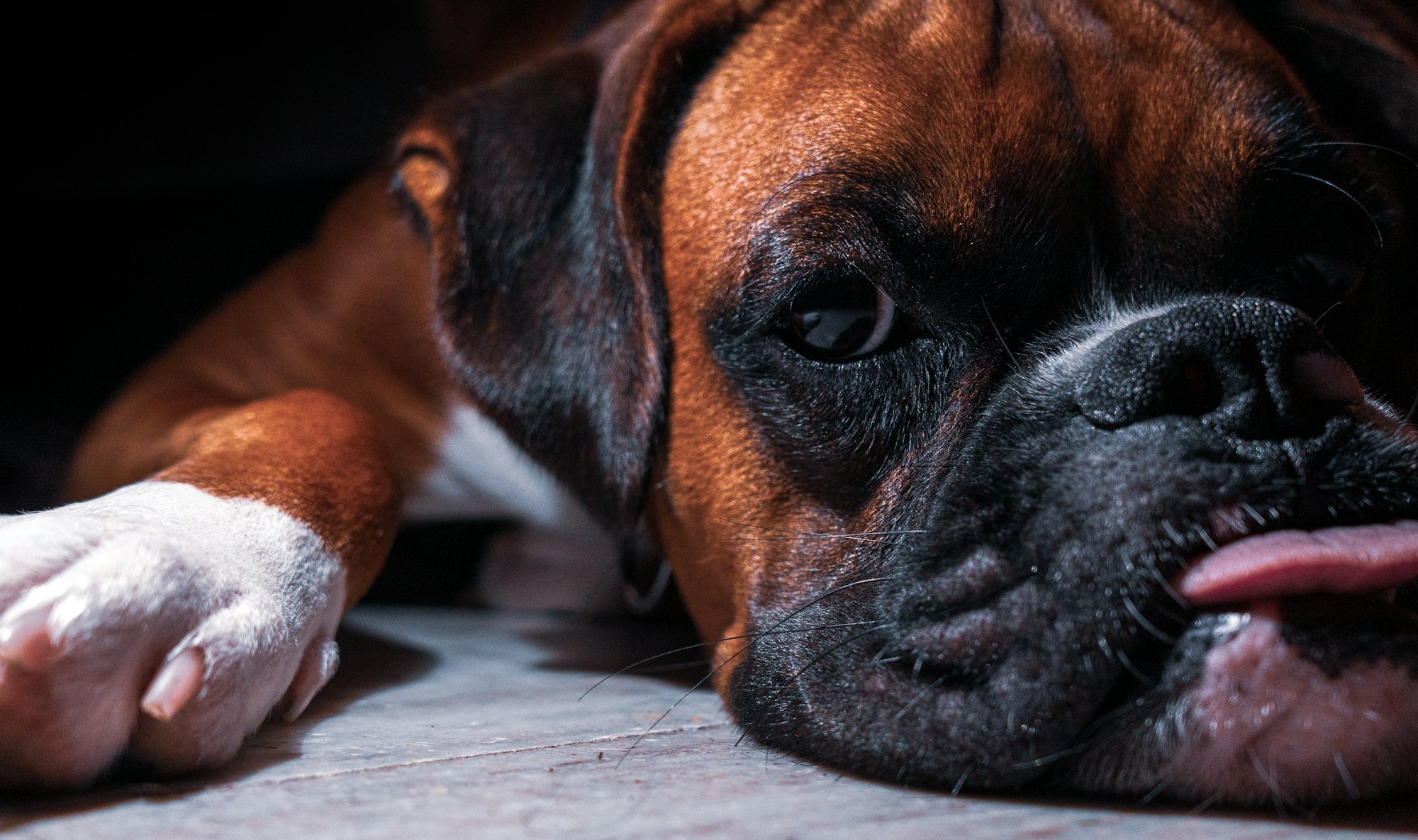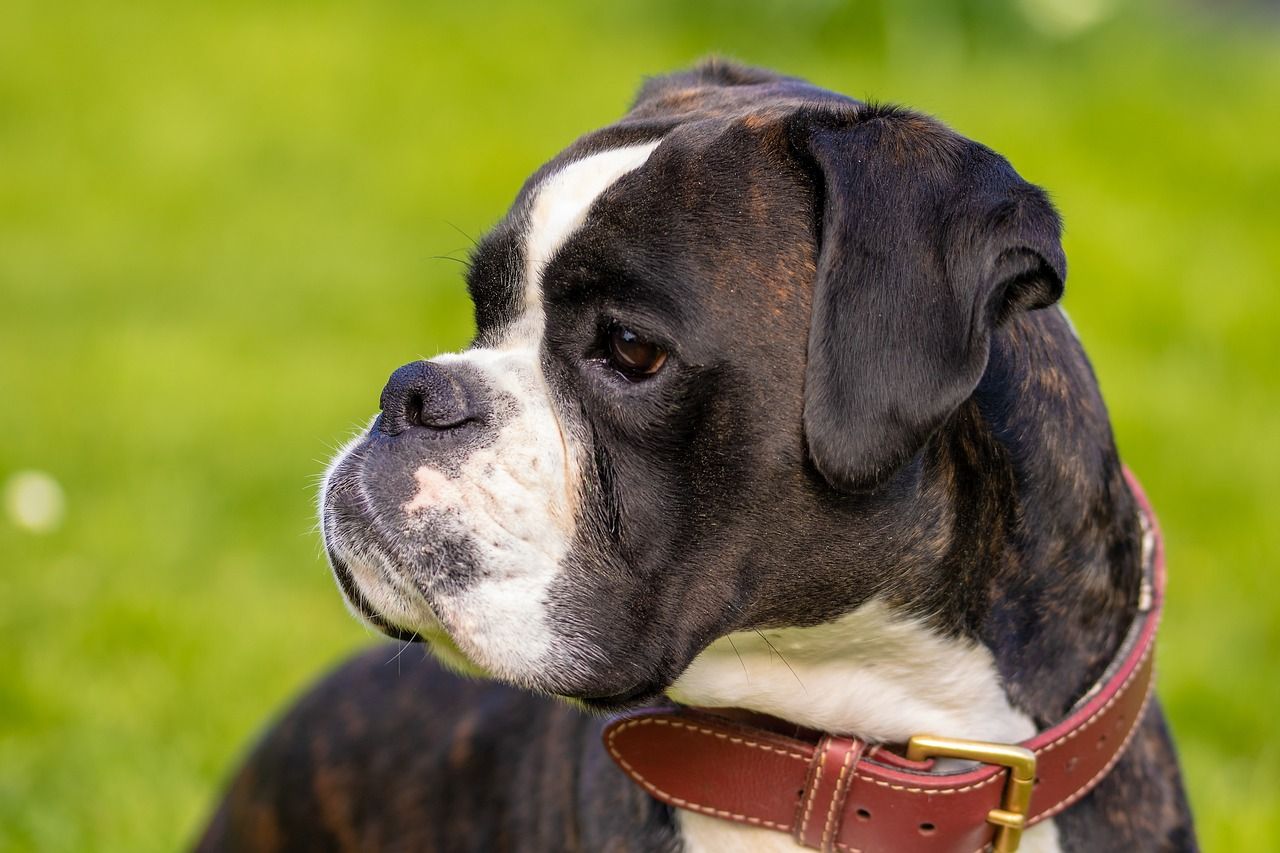Are Boxer dogs friendly? This question has danced in the minds of countless potential dog owners, shelter volunteers, and those simply curious about the nature of this spirited breed. You see, Boxers, with their muscular frames and pronounced jaws, can seem intimidating at first. But anyone who's had the privilege of meeting a Boxer up close knows there's much more to their story. Let's embark on a journey to truly understand the nature of Boxer dogs.

A Brief Background on Boxers
Boxers, originally bred in Germany, come from a lineage of hunting dogs. These ancestors were crafted for strength and agility, hunting large game such as boars. Yet, it wasn’t their hunting prowess alone that made Boxers famous. They were also revered for their loyal disposition, often doubling as guardian dogs for families.
Delving into the Boxer Temperament
While the old hunting spirit does reside in the Boxer's DNA, they've evolved over the centuries, moulding into household companions known for their playful and protective nature. Ask any Boxer owner, and they'd probably gush about their pet's clownish antics or their perpetual puppy energy.
Are Boxers Good Family Pets?
Contrary to some misconceptions, Boxers are excellent family pets. Their protective streak ensures they watch over every family member, especially children. Their interaction with children is particularly endearing. Boxers are patient and gentle, often indulging kids in play while acting as guardians.
Understanding Boxer Dog Behavior
A significant aspect of the Boxer dog's friendliness stems from its energy levels. They're a bundle of energy! This translates into their eagerness to play, bond, and explore. This zest for life often masks itself as "hyperactivity" to those unfamiliar with the breed. But in truth, this very energy makes them so amiable, loving, and always ready for the next adventure.
However, like any dog breed, Boxers need proper socialization. They adapt beautifully when introduced to varied environments, people, and animals at a young age, showcasing their affable side.
Boxer Dog Aggression Myths
Now, let's address the elephant in the room. The stereotype of Boxers being aggressive is one of those age-old myths that's more hearsay than reality. Aggression in dogs is typically a result of improper training, lack of socialization, or, in some cases, health issues. It isn’t breed-specific. Properly trained and socialized Boxers are as friendly as they come.
Boxers as Companion Animals
If you're considering a Boxer as a companion, here's a little secret: they're huge cuddle bugs! Yes, the same dog that might leap five feet in the air to catch a ball also loves snuggling on the couch. They form deep bonds with their humans, making them not just pets, but genuine family members.
Socializing Boxer Puppies
Emphasizing the importance of early socialization, getting your Boxer puppy accustomed to various sights, sounds, and experiences ensures they grow up to be well-rounded adults. Enrolling them in puppy classes, taking them to parks, or even regular neighbourhood walks exposes them to different stimuli, reinforcing their friendly nature.
A Boxer’s Life Through the Years
Delving further into our exploration of the Boxer breed, it’s essential to understand their life stages and how their friendly nature manifests through the years.
Puppyhood and the Boxer’s Boundless Energy
Boxer puppies are a whirlwind of joy and energy. These little bundles of fur are inquisitive and playful, constantly exploring their environment. During this phase, their friendly demeanor is evident in their incessant desire to play with both humans and other pets. Their wobbly run, floppy ears, and curious eyes are enough to melt anyone's heart.
However, with their playfulness comes the need for guidance. It's during this time that training and socialization are most impactful. Their innate friendly disposition needs to be nurtured and directed positively.
The Adolescent Boxer: A Teenager in Dog Years
As they transition from puppyhood, Boxers, like all adolescents, undergo a phase of testing boundaries. This isn't a sign of unfriendliness but rather a natural progression. It's during these months that consistent training and reinforcement become crucial. With the right guidance, this phase only solidifies their friendly and loyal nature further.

Adult Boxers: The Guardians and Companions
Adult Boxers strike the perfect balance between playfulness and responsibility. Their protective nature comes to the fore, especially if they sense any threat to their loved ones. Yet, they still retain the puppy-like charm that makes them so endearing. Many Boxer owners often jest that their dogs never truly grow up, remaining playful "puppies" at heart.
Senior Boxers: The Wise and Gentle Souls
Age brings a serene wisdom to Boxers. Their energy levels might decrease, but their affection and loyalty never wane. Senior Boxers are gentle, often seeking the comfort of their human companions more than ever. During these years, the depth of their friendly nature shines brightest, making them perfect cuddle partners on cold nights.
Boxers and Other Pets: Do They Gel Well?
A common question among potential Boxer owners is how well they get along with other pets. The answer, in most cases, is exceedingly well. Boxers, with their sociable nature, often enjoy the company of other dogs and even cats. Their playful disposition means they're always up for a game of fetch or a playful wrestle with a furry sibling.
However, early introductions and proper socialization are key. When introduced to other pets in a controlled and positive manner, Boxers usually form lasting bonds, proving once again their amicable nature.
Living with a Boxer: Daily Adventures and Misadventures
Any Boxer owner will attest that life with these dogs is never mundane. Their spirited personalities ensure that every day brings its own set of adventures (and occasionally, a few misadventures).
The Quirks of a Boxer
Every breed has its quirks, and Boxers are no exception. These dogs are known for what many owners lovingly refer to as the "Boxer Burn." It's that sudden burst of energy where they zoom around the house, garden, or park at top speeds, twisting and turning with surprising agility. This display of vivacity, usually ending with a satisfied and tired Boxer, is just one of the many quirks that define them.
Another adorable trait? The famous "Boxer talk." These dogs are quite vocal, often emitting a series of grumbles, groans, and yips. They aren't necessarily barking; it's more like they're engaging in a deep, meaningful conversation with their humans. This "talk" is just one of the ways they express their friendly and communicative nature.
The Boxer's Diet: Fueling Their Friendly Nature
Behind every energetic and friendly Boxer is a well-balanced diet. Given their high energy levels, Boxers require a nutrient-rich diet to sustain their playful antics. Owners often find that a mix of quality commercial dog food combined with occasional treats and natural foods keeps their Boxer in optimal health.
But be warned, their friendly nature and expressive eyes make them excellent at begging for treats! It's essential to monitor their food intake to prevent obesity, a common concern in the breed.
Training and Enrichment: The Key to a Happy Boxer
While Boxers are inherently friendly, consistent training from a young age is pivotal. Their intelligence and eagerness to please make them fairly easy to train, but they do best with positive reinforcement. Treats, praises, and play are your best allies in training a Boxer.
Beyond basic obedience, Boxers thrive when presented with mental challenges. Puzzle toys, agility courses, and regular play sessions are vital for their mental well-being. An engaged Boxer is a friendly Boxer.
Health Checks and Regular Vet Visits
Like all breeds, the robust and lively Boxer has its share of health concerns. Regular check-ups, vaccinations, and preventive care are paramount. Being proactive about their health ensures they live long, happy lives, filled with friendly encounters and loving memories.

The Boxer’s Role in Popular Culture
Given their distinctive appearance and lively nature, it's no surprise that Boxers have captured the hearts of many, even making their mark in popular culture. Their friendly disposition and antics have made them popular subjects in movies, literature, and celebrity households.
Boxers on the Silver Screen
Over the years, several films have showcased the charismatic nature of Boxers. Their playful antics, combined with their protective nature, make for engaging storytelling. From being loyal sidekicks to heroes in their own right, Boxers have truly shone on screen, further emphasizing their friendly and brave nature to global audiences.
Boxers in Literature
The world of literature hasn't remained untouched by the Boxer's charm. Several authors, charmed by their own Boxer companions or the breed in general, have woven tales where these dogs play pivotal roles. Children's books, in particular, have showcased Boxers as friendly playmates, guardians, and sometimes, the source of gentle life lessons about love and loyalty.
Celebrities and Their Boxer Companions
Many celebrities, smitten by the Boxer's unique blend of strength and tenderness, have chosen them as companions. These celebrity-Boxer duos, often featured in magazines or social media, further emphasize the friendly and adaptable nature of the breed. Their appearances on red carpets, interviews, or casual walks around the town highlight the close bond between the Boxer and its human, making a powerful statement about their generous nature.
Boxer Dogs in Sporting Events
Due to their history and inherent athleticism, Boxers have also been popular in various dog sporting events. They often steal the show from agility to obedience competitions with enthusiasm and intelligence. Their friendly competition with other breeds in these events showcases their adaptability and eagerness to please both the audience and their handlers.
Boxers as Service and Therapy Dogs
Beyond being household companions, Boxers have been trained as service and therapy dogs, further testament to their friendly and intuitive nature. Their ability to sense human emotions and unwavering loyalty make them excellent companions for those in need.
Service Dogs
Boxers have been trained to assist individuals with disabilities, from guiding the visually impaired to alerting those with medical conditions like seizures. Their intelligence, combined with their protective nature, ensures they're always alert and ready to assist.
Therapy Dogs
Given their friendly disposition, Boxers make exceptional therapy dogs. They've been brought into hospitals, nursing homes, and schools, providing comfort and joy to distressed people. Their presence, with their wagging tails and attentive eyes, can bring solace to many, reinforcing their reputation as one of the friendliest breeds.

Conclusion:
In the vibrant tapestry of the canine world, Boxers stand out with their unique blend of energy, loyalty, and affection. From their playful puppy years to their wise senior moments, Boxers are epitomes of friendship, consistently showcasing their endearing quirks like the "Boxer Burn" and their heartfelt "talks."
Their appearances in popular culture, roles in service and therapy, and athleticism in sporting events only reinforce their multifaceted personalities. Through films, literature, and real-life interactions, one message rings true: the Boxer breed embodies the essence of a steadfast friend with its boundless energy and undying loyalty.
Frequently Asked Questions (FAQs) about Boxer Dogs
1. Are Boxer dogs friendly by nature?
Yes, Boxer dogs are known for their friendly and affectionate disposition. They're sociable creatures, bonding closely with families and often getting along well with other pets when introduced properly.
2. How do Boxer puppies behave?
Boxer puppies are playful, curious, and full of energy. They're eager to explore their surroundings and often need guidance to channel their enthusiasm positively.
3. Can Boxers be trained easily?
Absolutely! Boxers are intelligent and eager to please, making them responsive to positive reinforcement training methods. Consistency and early training are key to nurturing their friendly nature.
4. How do Boxers interact with other pets?
Generally, Boxers get along well with other pets, especially if introduced early and in a controlled environment. Their playful disposition means they often enjoy the company of other dogs and even cats.
5. Are Boxers suitable for families with children?
Yes, Boxers are often great with children, owing to their protective yet gentle nature. However, as with any dog, supervision during interactions and teaching children the right way to approach dogs is crucial.
6. What are the common quirks of Boxers?
Boxers are known for certain unique behaviors like the "Boxer Burn," where they zoom around with bursts of energy, and the "Boxer talk," which is their distinct way of vocalizing through grumbles and yips.
7. Do Boxers need a special diet?
While Boxers don't necessarily need a "special" diet, they thrive on a balanced, nutrient-rich diet given their energy levels. Monitoring their food intake and avoiding overfeeding is essential to prevent obesity.
8. Are Boxers represented in movies and literature?
Yes, Boxers have made notable appearances in films, literature, and even celebrity households, showcasing their charismatic and friendly nature to global audiences.
9. Can Boxers serve as therapy or service dogs?
Certainly! Boxers' intuitive and friendly nature makes them excellent candidates for therapy and service roles, from providing emotional support to assisting individuals with disabilities.
10. What's the lifespan of a Boxer dog?
On average, Boxers live between 10-12 years. Regular vet check-ups, a balanced diet, and consistent exercise can ensure they lead a healthy and fulfilling life.




